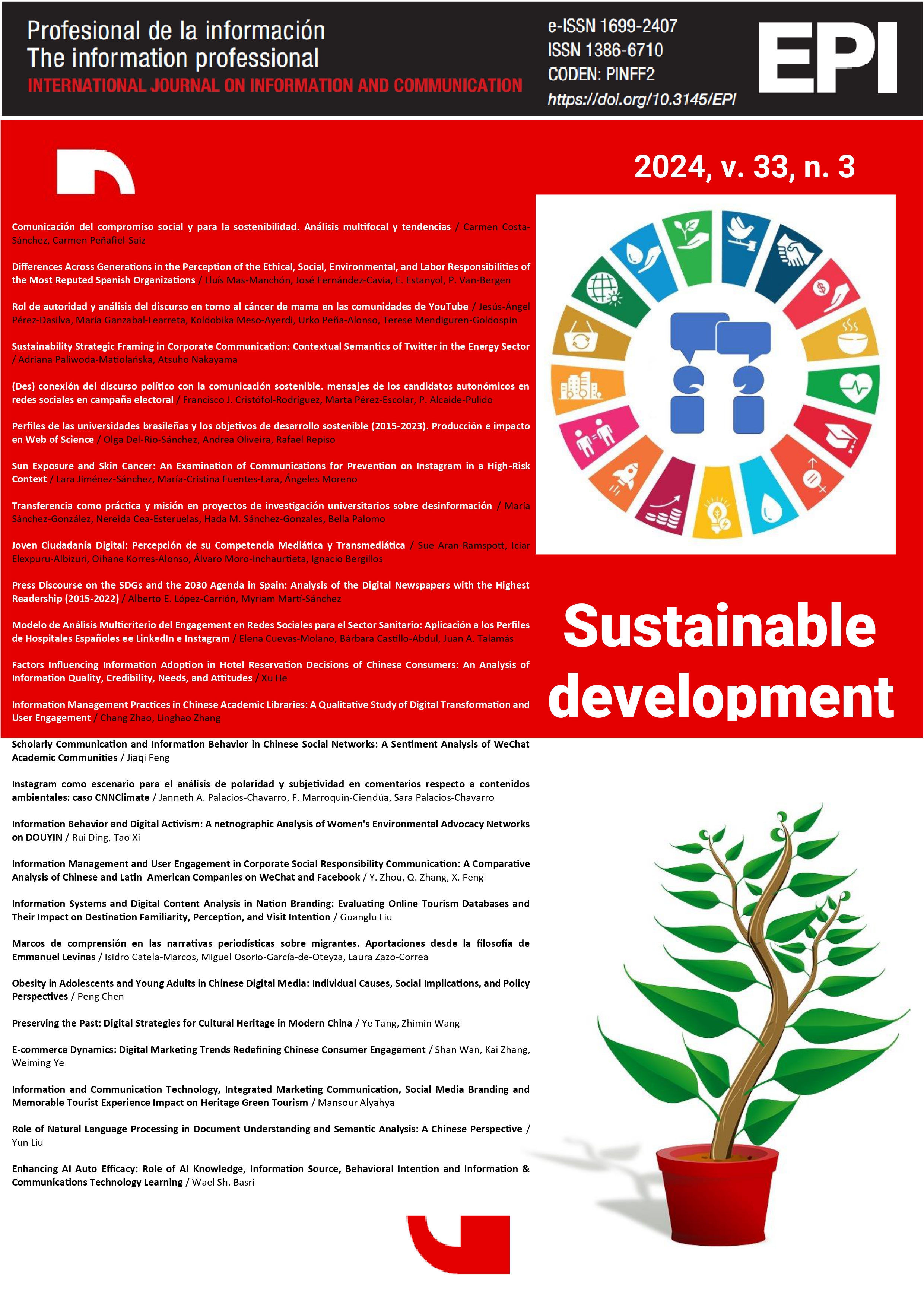Sustainability Strategic Framing in Corporate Communication: Contextual Semantics of Twitter in the Energy Sector
DOI:
https://doi.org/10.3145/epi.2024.0304Resumen
Sustainability has become the prevailing paradigm, a model of conduct, and a central theme in social and media
discourses within the past decade. However, it is still a marginal development concept in the interdisciplinary
research field dealing with sustainability communication, especially with meaning-making processes in relevant
communicative, for example, in corporate and industry contexts. This paper focuses on how the idea of
sustainability is framed, anchored, and disseminated in energy companies' communication via social media
channels and how the linguistic methods used by energy corporations concerning sustainability co -create their
symbolic value. Specifically, this study has aimed to understand how the sustainability topic was discussed in the
Twitter sphere of the most prominent energy companies in 2020. This study makes a three -fold contribution to
sustainable research and practice. First, the study identifies the framing structure of sustainability content in
social media communication in the energy sector. Secondly, the study identifies social media data as a viable
source of sustainability conceptualization and its understanding through communication. Finally, this study
illustrates how text mining and natural language processing (NLP) can be used as a research method for managing
big text data and a tool for discovering latent communication structures. Sustainability is present and visible in
the communication of the energy industry identified by (1) the semantic construction of phrases in communication
that show a future, green, and clean orientation, but it is also strongly declarative, referring to what will be and
can be done, and with positive emotions related to the communicated messages; and (2) decoupling from climate
change and thus avoiding the industry's responsibility for the impact of global warming but promising clean,
sustainable energy transformation and to avoid negative emotional connotation. However, one gets the
impression that it takes on the character of a rhetorical art form related to the concept of decorum. In this view,
the idea of sustainability is interpreted and shaped through the needs of the industry and as a rhetorical tool in
building a positive narrative about companies and is used to gain legitimacy.
Descargas
Downloads
Publicado
Número
Sección
License
Copyright (c) 2024 Profesional de la información

This work is licensed under a Creative Commons Attribution 4.0 International License.
Condiciones de difusión de los artículos una vez son publicados
Los autores pueden publicitar libremente sus artículos en webs, redes sociales y repositorios
Deberán respetarse sin embargo, las siguientes condiciones:
- Solo deberá hacerse pública la versión editorial. Rogamos que no se publiquen preprints, postprints o pruebas de imprenta.
- Junto con esa copia ha de incluirse una mención específica de la publicación en la que ha aparecido el texto, añadiendo además un enlace clicable a la URL: http://revista.profesionaldelainformacion.com
La revista Profesional de la información ofrece los artículos en acceso abierto con una licencia Creative Commons BY.





